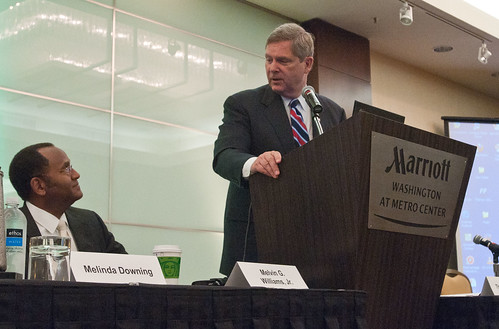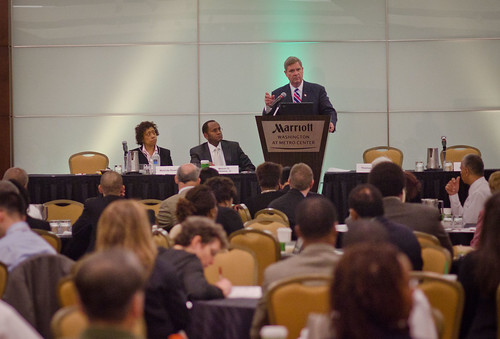Building a clean energy economy with equity was the topic of this year’s “The State of Environmental Justice in America” conference held this week in Washington.
In opening remarks on Thursday, Vice Admiral Melvin Williams Jr. (retired), associate deputy secretary, U.S. Department of Energy, said that the key to a new energy economy can be summed up by “commitment, fairness and collaboration.” He noted that the mission of the Department of Energy is to “help ensure the security and prosperity of America” and environmental justice is integral to that commitment.

Agriculture Secretary Tom Vilsack, the keynote speaker, began his remarks by acknowledging Admiral Williams’ long career of service to our nation. He then turned to the topic of building a renewable energy economy in rural America. The Secretary discussed President Obama’s priority of increasing production of energy from renewable sources, and that the President has challenged USDA to break ground on at least 4 biorefineries over the next year while retrofitting others to make them more energy efficient.
He then talked about the “equity” issue, explaining USDA efforts to help other nations increase food production, while, here at home, making sure that rural Americans not only know about USDA’s renewable energy and other programs, but apply for them. The Secretary said what is needed is a clean energy economy that provides jobs and benefits for those living in persistent poverty counties and those rural residents with low incomes.
“We will do a better job of making sure people in poor counties know about our programs,” Vilsack said. “People think the applications are too complicated….The reality is, folks don’t think they can participate and they can’t if they don’t apply.”
The Secretary said USDA is pioneering a “strike force” to go to target states with large pockets of rural poverty and work to produce applications. He also discussed a new regional approach called “Great Regions” where small communities and sparsely populated areas can band together to develop applications with assistance from non-profit organizations.
The Secretary concluded his remarks by saying that rural America now has a “tremendous opportunity to produce renewable energy” and benefit from the jobs created by that activity, but “the equity piece is as important as the clean energy piece.” He said that at USDA, we’re proud of all of our programs, and anxious to ensure that they are available to all eligible applicants, including those in economically challenged rural areas.

